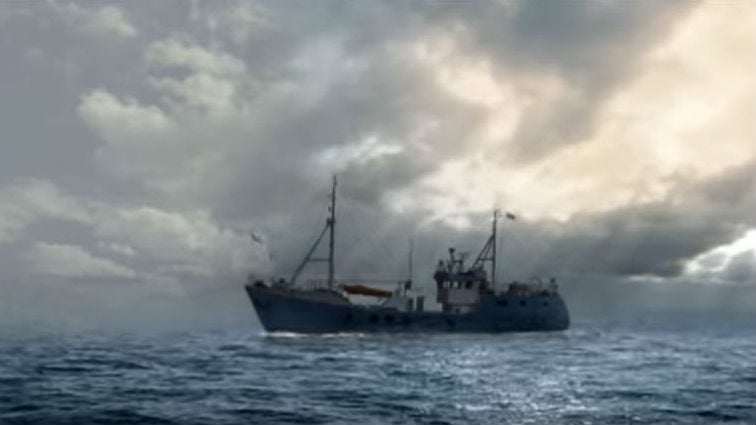Tuna Company Moves to Against Debt Bondage

The world's largest canned tuna company, Thai Union Group PCL, announced on Thursday it would eliminate recruitment fees for its workers - a move that will prevent workers from racking up debts to job brokers and from being exploited and abused.
The vast majority of migrant laborers in Asia have to pay sizeable fees to brokers and agencies to land jobs abroad, often borrowing money and starting their new jobs deep in debt.
When they start work, they are often not paid for six months to a year as their salaries go towards paying those debts, leaving them vulnerable to trafficking and broker exploitation.
The "zero recruitment fees" policy of Thai Union - with brands such as Chicken of the Sea, John West and Petit Navire - takes effect immediately for future recruitment of all workers in its factories and processing plants - most of them from Thailand, Myanmar and Cambodia, the company said in a statement.
"That's something that Thai Union sees as essential to make sure that workers aren't in debt bondage before they start work," said Darian McBain, Thai Union's global director of sustainable development.
"We'll cover the costs of all the agency fees, so that people aren't burdened with the debt that they can sometimes build up on the way to coming to employment in Thailand," she said.
“One of the key platforms in developing a truly sustainable future is the need for all employees to have access to safe and freely-chosen employment. Debt bondage resulting from recruitment has no place in our workplaces,” said McBain. “We will continue to take initiatives to eliminate potential for abuses of labor and human rights in our workforce as and when we find them.”
Activists commended the policy and said they hoped other companies would follow suit.
"100 percent of the costs of recruitment is falling on workers. This is completely unacceptable. Companies should be paying to recruit workers, or at least they should be taking a very fair share of the burden," said rights activist Andy Hall, an advisor to the non-profit Migrant Worker Rights Network (MWRN).
"It's the main issue leading to human trafficking, debt bondage and slavery these days," he said, adding that Thai Union "has realized that it's their responsibility to ensure that their recruitment supply chain - to get the workers into the factory - is clean."
Thailand's multibillion-dollar seafood industry has come under fire in recent years after numerous investigations by journalists and rights groups showed widespread slavery, trafficking and violence on fishing boats and in onshore food processing factories.
Thai Union, with annual sales exceeding $3.5 billion and more than 46,000 employees worldwide, has been working with MWRN and Hall to strengthen relationships with recruitment agents in Cambodia and Myanmar, and map out recruitment processes in order to reduce costs and complexities, the company said.
McBain, an expert on sustainable supply chains who joined Thai Union last July, said the company once viewed NGOs as outsiders that raised issues and caused alarm, but now sees local organizations in particular as "a vital part of our work".
Thai Union is also working closely with the non-profit Issara Institute, which started a multilingual hotline for the company's workers to raise concerns and give them a voice.
Issara Institute is now developing a helpline app for mobile phones, McBain said.
"We found out 93 percent of workers in our factories have a smartphone, so that is enormous potential for how they can access these remedy situations," she said.
The company can provide the app to workers on shore, as well as at sea on vessels equipped with satellite or wifi connectivity "so workers can have access to a voice at sea as well."
Earlier this year, Thai Union introduced a new Code of Conduct that prohibits all forms of forced and child labor and outlines the mandatory legal and ethical requirements for conducting business with Thai Union. Thai Union is a member of the United Nations Global Compact (UNGC) and the Good Labor Practices program with the ILO.
In the last 18 months the company has terminated relationships with 17 suppliers due to forced labor or human trafficking violations and reduced the number of Thai vessels it works with from over 2,000 to around 400 to provide much better visibility and control of labor conditions and compliance with IUU regulations. Thai Union has also implemented an extensive program of auditing, from vessels to factories, to ensure the safe and legal employment of workers within its own operations and those of its suppliers.
